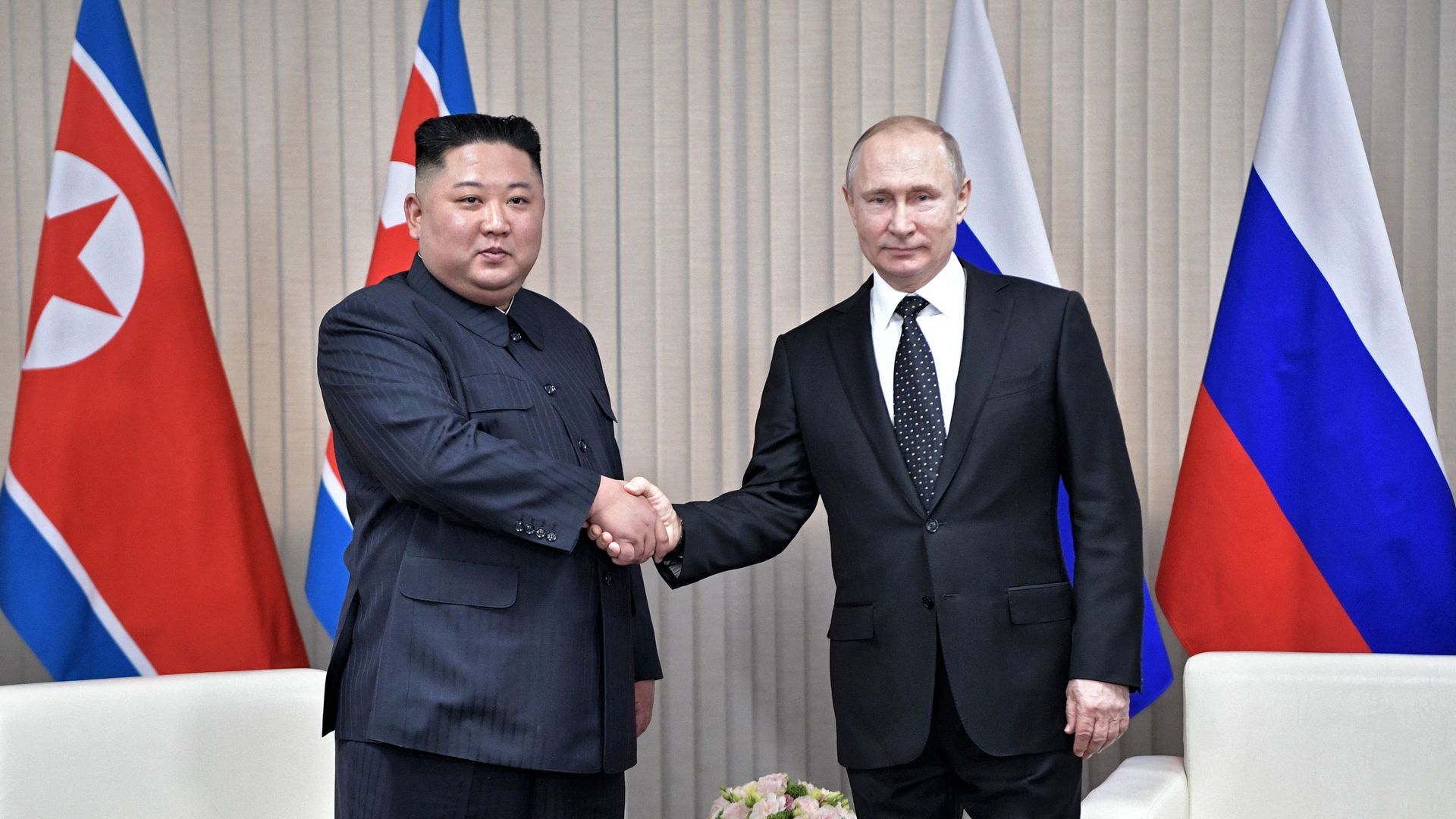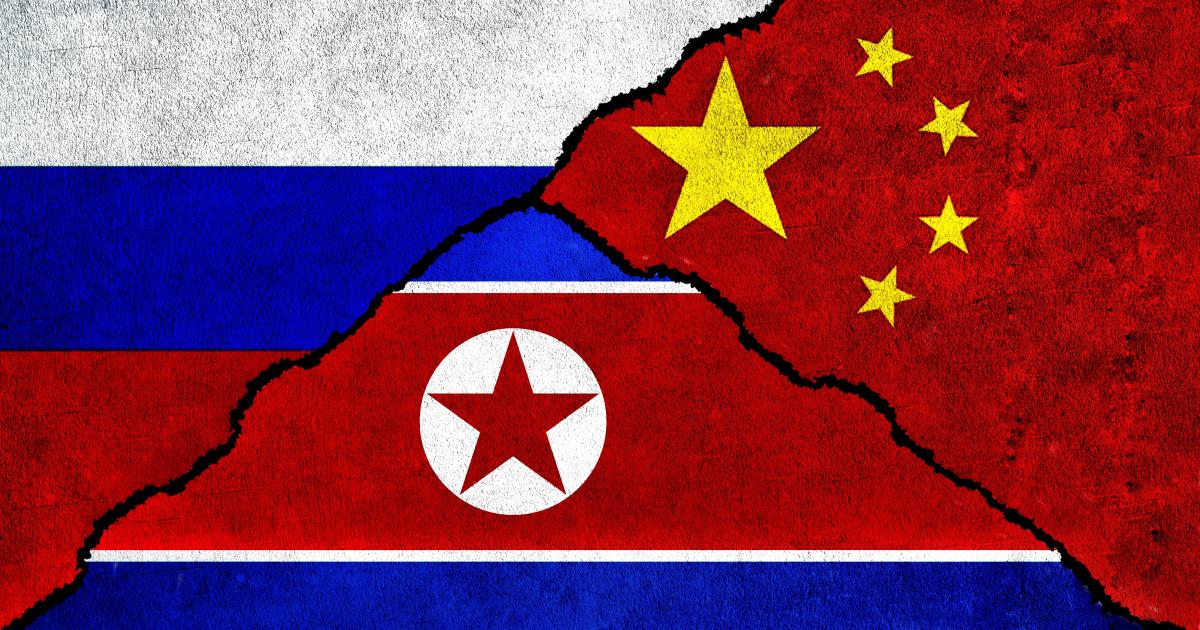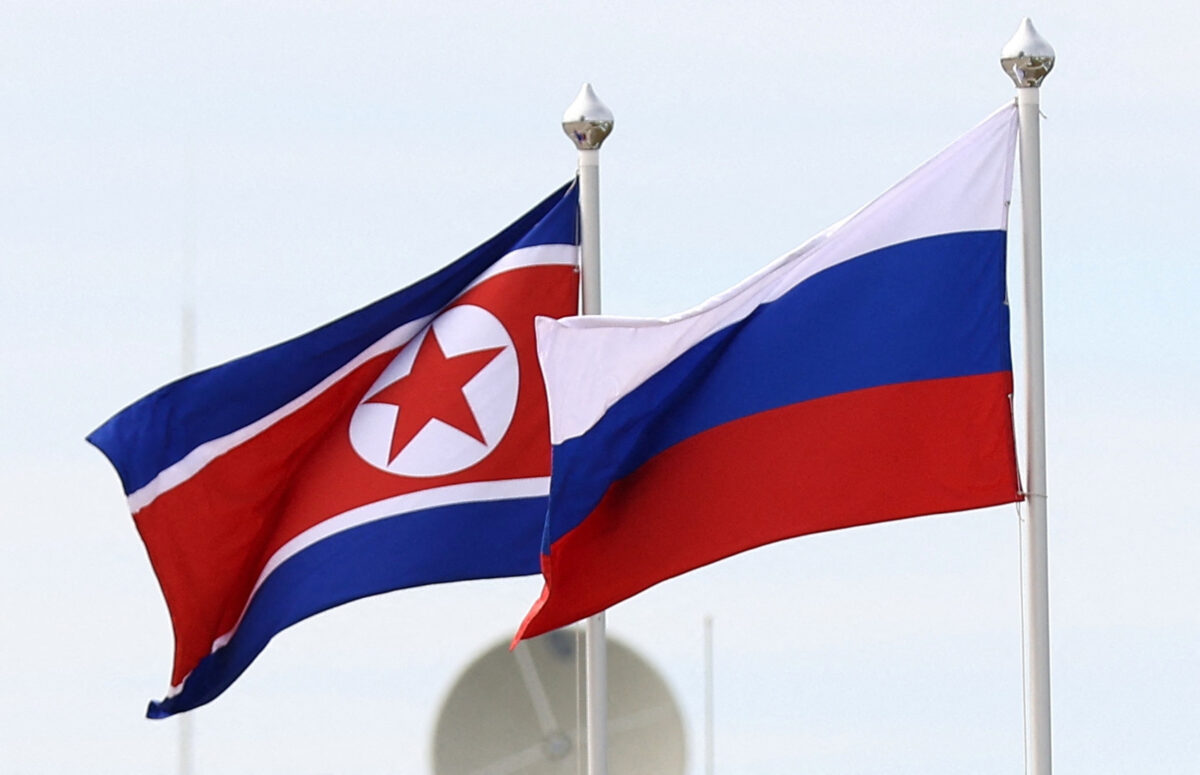The intriguing relationship between Russia and the USA can be dated back to the 1940s. It’s not something unfiltered and has several layers magnified into their dynamic relationship. This relationship sought to turn one step further with the manipulative angle with the recent speculation of a visit to North Korea by Putin which has a significant chance of violating UN Security Council resolutions.
In an urgent phone conversation with U.S. Deputy Secretary of State Kurt Campbell, South Korea’s Vice Foreign Minister Kim Hong-kyun expressed that Putin’s visit should not lead to increased military collaboration between Pyongyang and Moscow, as this would breach the resolutions, according to South Korea’s foreign ministry.
Table of Contents
Why Does Putin’s Visit Spark Anxiety?
According to media reports, Putin intends to visit North Korean leader Kim Jong-un, reciprocating Kim’s weeklong visit to Russia last September. During that visit, the two leaders reportedly agreed that North Korea would receive Russian assistance with its space program in exchange for supplying Russia with weapons for the war in Ukraine, contravening UN resolutions.
Moscow has dismissed reports of using North Korean weapons and ammunition as “absurd”. However, UN sanctions monitors reported that debris from a missile that struck the Ukrainian city of Kharkiv on January 2 was identified as a North Korean Hwasong-11 series ballistic missile, launched from Russian territory. US Deputy Secretary of State, Kurl Campbell warned the counterpart (South Korea) that their joint military collaboration may result in instability in the region.

An eminent international studies professor, Sergey Radchenko examined “Putin’s reaching out to Kim Jong-un is a desperate move – and potentially a dangerous one”. This week, Russia affirmed its right to cultivate “very deep” ties with North Korea, amid worries that Moscow’s global isolation might lead to the transfer of missile and nuclear technology to Kim’s regime.
Kremlin spokesperson Dmitry Peskov told reporters, “North Korea is our neighbor and a friendly country with which we are enhancing bilateral relations. We will continue to do so in a positive direction. The potential for developing our relations is boundless. We believe that our right to foster good relations with our neighbors should not concern anyone and cannot and should not be contested by anyone.”
What is The History Behind Their Ties?
As Russia’s isolation from the West due to its war in Ukraine has intensified, analysts note that it increasingly values its relationship with North Korea. For North Korea, ties with Russia have not always been as close as during the peak of the Soviet Union, but now the nation is benefiting significantly from Moscow’s need for allies.
Communist North Korea was established in the early Cold War period with Soviet Union support. It later fought against South Korea and its U.S. and United Nations allies to a stalemate in the 1950-1953 Korean War, receiving substantial aid from both China and the Soviet Union. For decades, North Korea depended heavily on Soviet aid, and the collapse of the Soviet Union in the 1990s contributed to a severe famine in the country.
Pyongyang’s leaders have frequently tried to leverage Beijing and Moscow against each other. Kim Jong-un, who assumed power in 2011, initially maintained a relatively cool relationship with both Russia and China, as they, along with the United States, imposed strict sanctions on North Korea over its nuclear tests.

Recently, Russia has aligned with China in opposing new sanctions on North Korea, thwarting a U.S.-led initiative and causing a public division within the U.N. Security Council on this issue for the first time since sanctions were first imposed on Pyongyang in 2006.
In March, Russia obstructed the annual renewal of a panel of experts responsible for monitoring the enforcement of longstanding U.N. sanctions against North Korea’s nuclear weapons and ballistic missile programs.
How Russia and North Korea are Interacting?
After North Korea’s most recent nuclear test in 2017, Kim Jong-un made efforts to mend relations, meeting Putin for the first time in 2019 in Vladivostok, Russia.
In September last year, Putin hosted Kim at the Vostochny space launch facility in Russia’s Far East, promising to assist North Korea in building satellites and pledging other forms of cooperation and support.
Highlighting the strengthening ties, Russian Defence Minister Sergei Shoigu visited Pyongyang in July 2023, touring a weapons exhibit featuring North Korea’s banned ballistic missiles. He later stood beside Kim during a military parade, saluting as the missiles passed.
Since the meeting between Kim and Putin last year, there has been a continuous exchange of delegations between the two countries, covering areas such as forestry, agriculture, zoos, and culture.
How The Ukraine War Affected Their Ties?
North Korea has shown public support for Moscow following Russia’s full-scale invasion of Ukraine in February 2022. It was one of the few countries to recognize the independence of Russian-claimed Ukrainian regions and backed Russia’s annexation of parts of Ukraine.
As previously mentioned, The U.S. and other nations have accused North Korea of supplying weapons to Russia for use against Ukraine. U.N. sanctions monitors reported that debris from a missile that landed in the Ukrainian city of Kharkiv on January 2 was identified as a North Korean Hwasong-11 series ballistic missile, launched from Russian territory.
Despite these accusations, Moscow and Pyongyang denied the claims but pledged last year to strengthen their military ties. Russian Defence Minister Sergei Shoigu mentioned to Russian media that Moscow was considering holding joint military exercises with North Korea, stating, “Why not, these are our neighbors. An old Russian is saying: you don’t choose your neighbors, and it’s better to live with your neighbors in peace and harmony,” as reported by Interfax news agency.
ALSO READ: Putin Meets Xi-Jinping in Beijing
How Russia-China-DPRK Strategy Impacts the Rest?
When Putin visits Pyongyang, both Russia and North Korea will be attentively watching China’s reaction to the trip. There has been speculation about the formation of a strategic Russia-China-North Korea alliance, but questions remain about its substantial basis.
On March 28, Putin vetoed a United Nations Security Council (UNSC) resolution that aimed to extend the activities of the UN Panel of Experts sanctions committee on North Korea (DPRK) for another twelve months. China abstained from the vote, while the rest of the UNSC members supported the extension. The US condemned Putin’s veto and criticized China’s abstention, arguing that it highlighted the Council’s stance on addressing Pyongyang’s proliferation.

While Putin’s simultaneous deepening of ties with both China and North Korea raises concerns, it is important not to overstate the significance of a trilateral relationship. Unlike the cohesive alliance blocs of the Cold War era, Moscow and Beijing are hesitant to formally acknowledge the existence of a trilateral axis involving Pyongyang. The intricate dynamics among Russia, China, and the DPRK are shaped by diverse strategic interests, historical conflicts, and differing views on regional security. These complexities undermine the notion of a unified trilateral axis but do not rule out substantial shifts in the global geopolitical landscape.




2 Comments
Pingback: Putin Peace Terms Crush into Ukraine Summit: Russia, China Absence Raise Questions - INPAC Times
Pingback: Russian President Vladimir Putin makes a 'Friendly' Visit to North Korea after 24 Years - INPAC Times